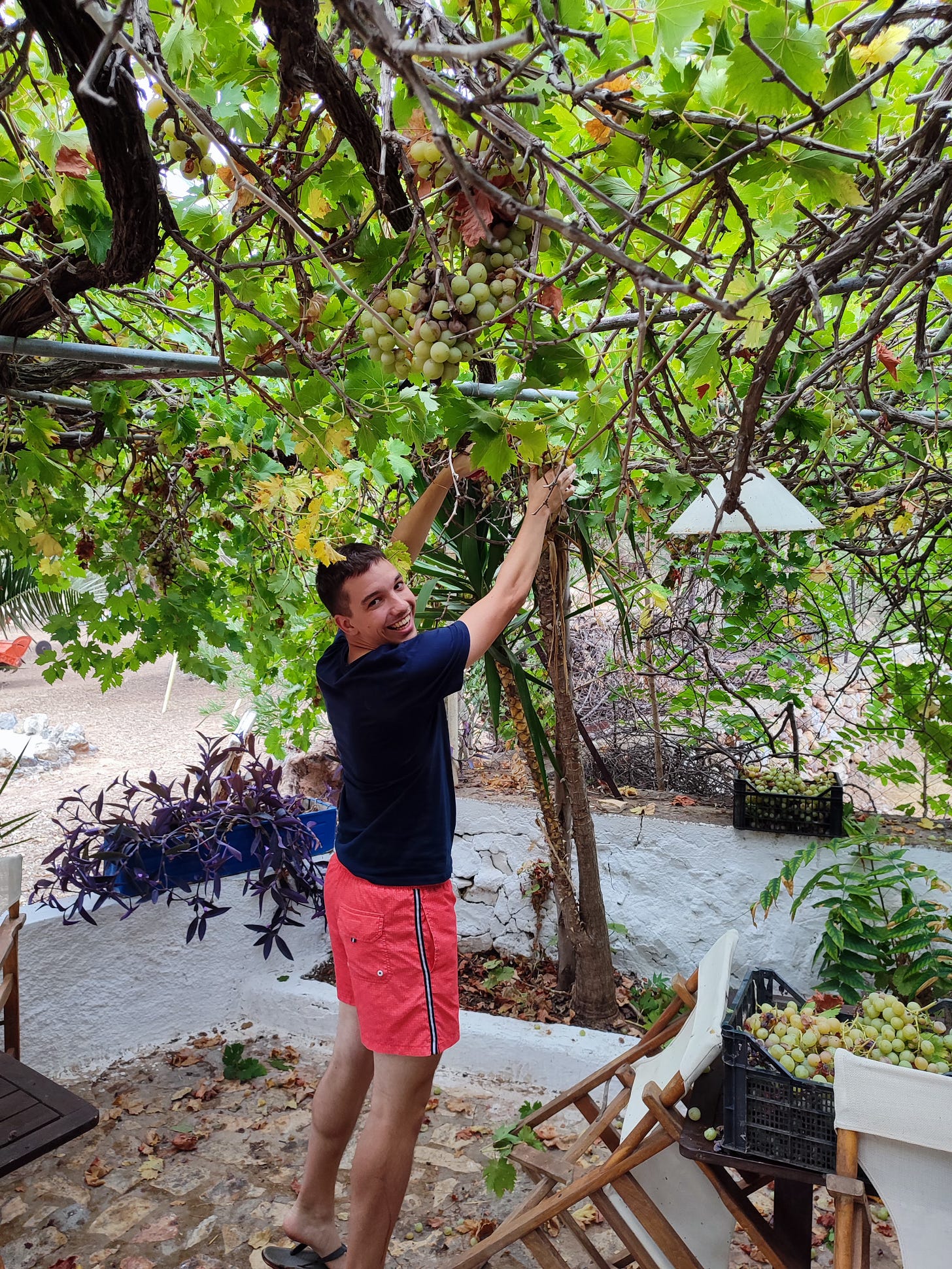Immersive and impactful travel experiences
How can we create a positive impact in the visiting communities and how can we influence other travelers to do the same?
When you travel, you can make a positive impact by respecting the local culture and customs and buying local produce and food. You can also leave a tip at a restaurant and buy souvenirs from local artisans. This is considered to help the destination with your wallet and purchasing decisions. But there are other ways to support the communities you visit, besides financial.
Instead of donating our money, we can donate our time and skills. Non-financial contributions are often referred to as travel philanthropy or voluntourism, which Ham describes as "an experiential product that leads travelers to care about the place, and then give them an opportunity in the immediate time frame to act on their caring''.
Voluntourism is a very popular type of travel where travelers pay for organized packages and a specialized travel agency allows them to donate their time to the places they visit. Voluntourists usually help with fruit picking, farming, building a local school, teaching English, etc. One of the most common ways to do this is also through platforms like Workaway.
In my research on these topics, I found that researchers in the field of travel philanthropy are primarily focused on exploring the topic of philanthropy in the context of conservation and wildlife. One interesting finding is that travel to "last chance" (e.g., Maldives) or unique destinations (e.g., Seychelles) and greater identification with nature (e.g., ecologists) and first-time visits create a greater need for philanthropy.
While I agree that wildlife conservation and natural parks need much of our help and attention, I believe we can make a big difference elsewhere as well. For the past few years, we've been traveling around with our team, visiting rural tourism providers in Europe and trying to help them digitize. These regions need a lot of help - from digital to non-digital. And we know we have people (students, remote workers, etc.) who can and want to help them.
This was confirmed for us at our last retreat in Leros, Greece, where we first helped with the grape harvest at the camp where we were staying, and some of the participants at the event also volunteered to help. These were concrete activities where we got immediate feedback that what we were doing had meaning and impact. Financial donations don't necessarily give you that.
I would say that it has always been important to be a considerate traveler, to make responsible choices when traveling, and to give back in some way. After all, we are guests when we travel to another's home (the visiting community) and it is important not only to receive things of value but also to try to give something back.
In recent years, the increasing commercialization of travel has made this even more important, with tensions arising in some destinations. Remember the posters in Barcelona and Venice that said, ‘‘Tourists go home’’? Now it's not just tourists, but digital nomads as well. Recently, locals in Lisbon started protesting against digital nomads and the situation in Mexico City is certainly not pleasant. Most of the recent problems that excessive or improperly regulated tourism (whether digital nomads, business or leisure travelers) can bring to a destination involve gentrification, rising prices, and feelings of exclusion and inequality.
Will volunteering or donating to the local community solve these problems? Probably not. But I will argue that they can mitigate the negative impacts and create better relationships between locals and visitors and improve the overall satisfaction of all destination stakeholders.
Why should we do it?
While there is an external motivation for volunteering, there is, of course, an internal one as well. I do not think we can deny that volunteering, giving, or any form of altruism makes us feel really good inside. It is, as my favorite book from last year says, at a deeper level an activity with competitive self-interest. In my opinion, there are selfish but very important benefits of volunteering while traveling for our personal development:
Having an authentic interaction with local people
Immersing yourself in the local culture
Having a transformative experience
Learning new skills
Meeting like-minded people
It feels good and useful. A feeling I think we all like, so why not do it more often? Volunteering gives you the opportunity to engage with others, gain skills and experience, and make a difference in the community. Plus, volunteering allows you to learn about the local culture, economy, and issues. With a little effort, you can make the most of your travel experience and make a difference.





